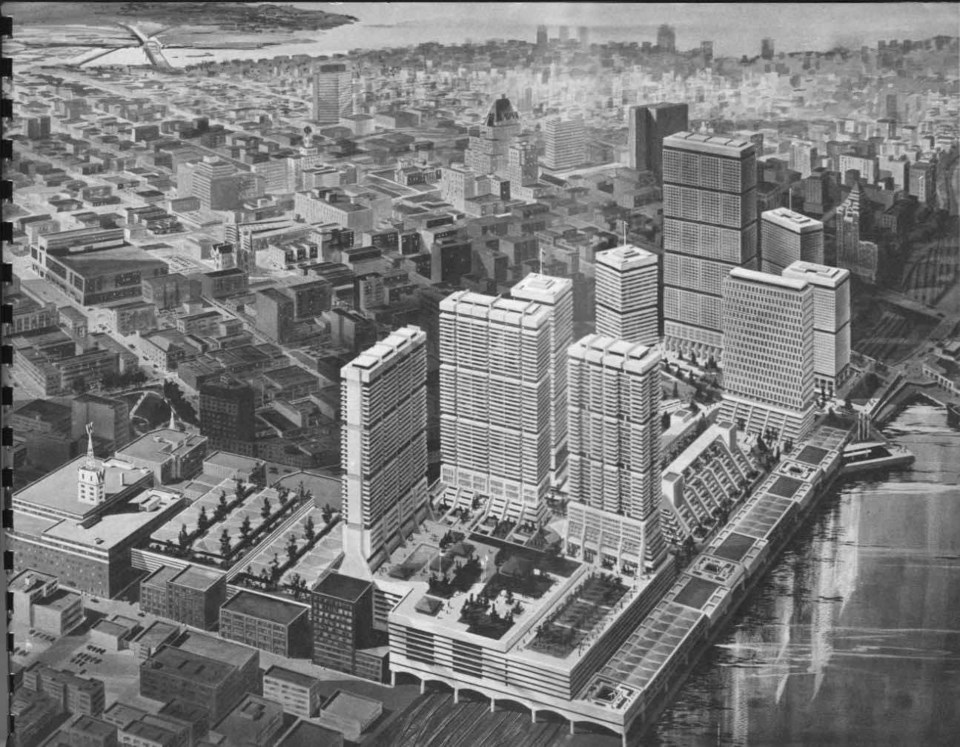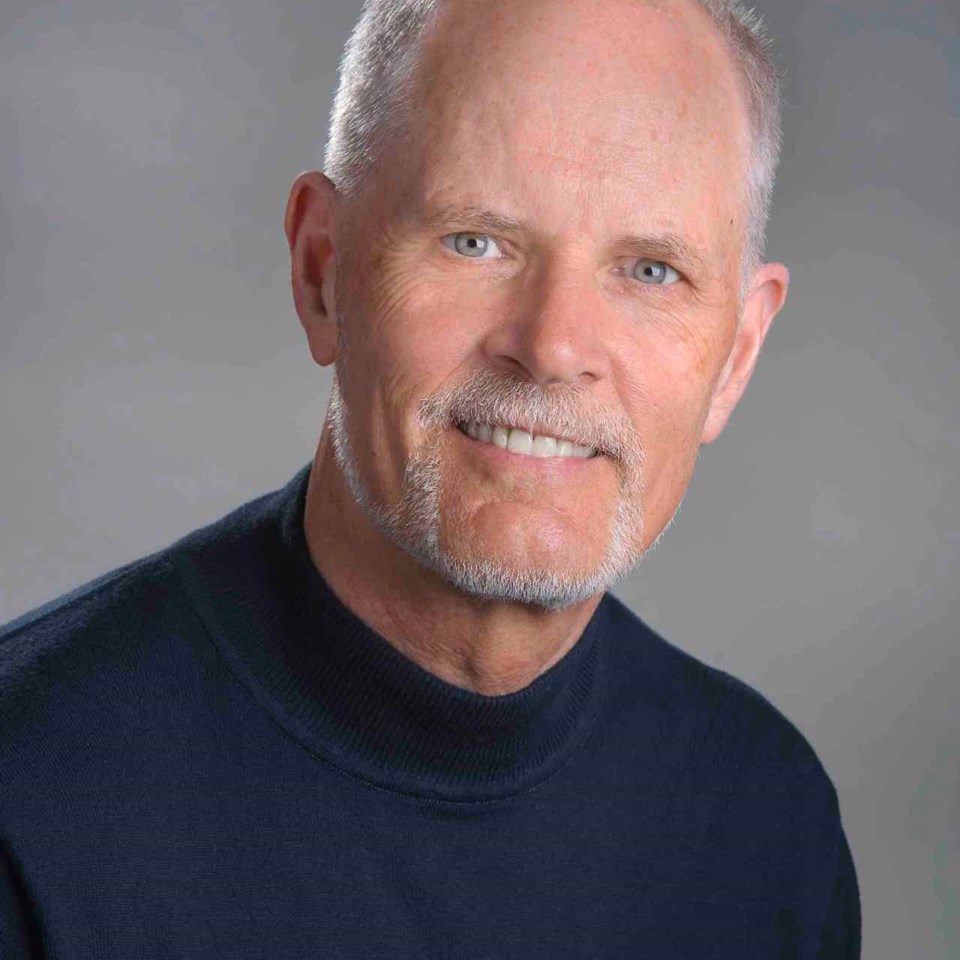 Project 200 was a failed plan from 1968 that included a forest of highrises and residential towers, a hotel and a waterfront freeway in downtown Vancouver. Note that Waterfront Station is missing from the plan. Image courtesy of Tom Carter.
Project 200 was a failed plan from 1968 that included a forest of highrises and residential towers, a hotel and a waterfront freeway in downtown Vancouver. Note that Waterfront Station is missing from the plan. Image courtesy of Tom Carter.
On January 26, former City Councillor Gordon Price, will reflect on the turbulent half-century of civic politics that began with the discontented 1960s, the great freeway debate, and the experiments with urban renewal-style social housing in Strathcona. His talk, part of the Vancouver Historical Society speaker series, takes place at 7:30pm at the Museum of Vancouver. Admission is free for VHS members, and by donation for non-members.
The defeat in 1972 of the Non Partisan Association and its flamboyant and controversial Mayor Tom Campbell ushered in an era of empowered citizens and utopian schemes such as the cooperative housing of South False Creek. For a period in the 1970s, the TEAM party led by Art Phillips turned away from the developer-driven agenda of the 1960s. Jack Volrich, who started as a TEAM alderman, moved the city to the right when he became mayor in 1976. However, his successor, Mike Harcourt, presided over a mixed council with less of the defined party politics of the preceding eras. During Harcourt's time, Vancouver hosted Expo and the Centennial and, with a sudden lurch into the international spotlight, began its transformation into the glassy city of today.
Gordon Price first came to public attention as an advocate in his neighbourhood, the West End, for citizens wanting rid of the street-prostitution problem. Elected in 1984, he was part of the Non Partisan Association majority during the years when Gordon Campbell and Philip Owen were mayors. That NPA was a "big tent," with Price and his allies arguing for progressive policies and, increasingly, urbanist schemes.
Downtown South was reinvented as a residential area. Heritage preservation became a concern, and innovative policies helped retain neighbourhoods such as Mount Pleasant and Strathcona while adapting old downtown buildings to new uses. Spurred on by Price himself, cycling as a mode of transportation emerged onto the civic agenda. He promoted better transit – from SkyTrain to B-line buses – supporting the more urban lifestyle familiar, in Vancouver, mainly to West End residents.
 Gordon Price is an urban planner who was an NPA member of Vancouver City Council, serving six terms from 1986 to 2002. He will give a talk on “Civic Politics over the Past Half Century” on Jan 26 at 7:30pm, at the Museum of Vancouver.
Gordon Price is an urban planner who was an NPA member of Vancouver City Council, serving six terms from 1986 to 2002. He will give a talk on “Civic Politics over the Past Half Century” on Jan 26 at 7:30pm, at the Museum of Vancouver.
Since ending his political career in 2002, Gordon Price has managed the City Program at SFU and developed an international reputation as a speaker on urban issues. In February, 2013, he received the Simon Fraser University President’s Award for service to the university through public affairs and media relations; that July, he received the President’s Award from the Canadian Institute of Planners “in recognition of an outstanding lifetime contribution to education and professional planning in Canada.” He has blogged on urban issues with a Vancouver focus for many years, recently with a number of collaborators, as "Price Tags."


